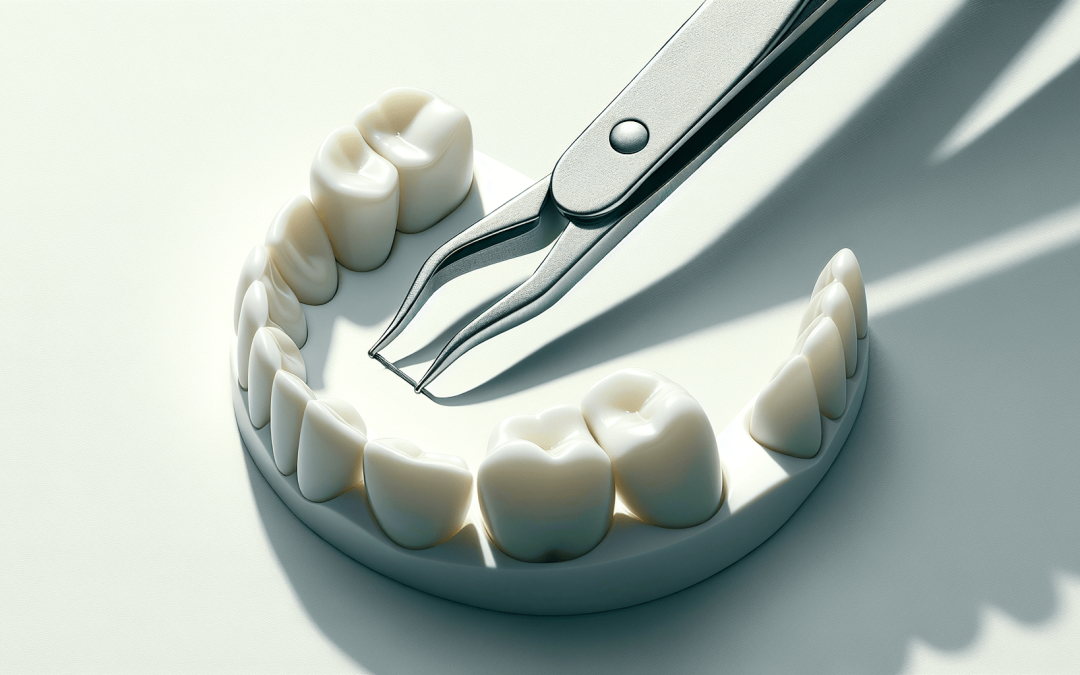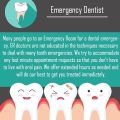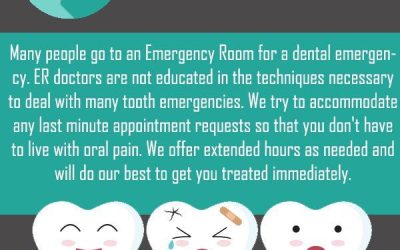So, picture this: you’re enjoying a nice meal when suddenly, you feel something hard lodged between your teeth. Panic sets in. Is this an emergency? Will you need to rush to the dentist? Take a deep breath and relax, because we’re here to shed some light on the situation. In this article, we’ll explore whether having a foreign object stuck between your teeth qualifies as a dental emergency or if it’s just a minor inconvenience. Don’t fret, we’ve got you covered. Let’s get started!
Understanding the Situation
When you have a foreign object stuck between your teeth, it can be quite bothersome and uncomfortable. Understanding the situation is the first step in dealing with it effectively. Assessing the severity of the situation is important as it will help determine the level of urgency. Identifying the foreign object and understanding the potential risks associated with it will also help in making informed decisions.
Assessing the Severity
The severity of the situation depends on various factors such as the size and type of the foreign object, the level of discomfort or pain it is causing, and any visible damage to your teeth or gums. If the object is small and not causing any pain or discomfort, it may not be considered an emergency. However, if the object is large, causing severe pain, or affecting your ability to eat or speak, it should be considered a more urgent matter.
Identifying the Foreign Object
It is important to identify the foreign object stuck between your teeth to determine the appropriate course of action. It could be anything from a piece of food, such as a popcorn kernel or a fruit seed, to a fragment of dental work, like a broken filling or crown. It could also be a fiber or string from your clothes or any other small object that got lodged between your teeth.
Potential Risks
Foreign objects stuck between your teeth can pose potential risks if not addressed promptly. If left untreated, they can cause further damage to your teeth or gums, lead to infection or inflammation, and even result in excruciating pain. In some cases, the foreign object may even become a choking hazard or cause an allergic reaction. It is, therefore, crucial to understand the potential risks involved and take appropriate action accordingly.
Determining the Need for Urgent Care
When dealing with a foreign object stuck between your teeth, it is important to determine the need for urgent care. While some situations may require immediate attention, others may only necessitate a dental consultation. Understanding when to seek immediate attention, when to seek a dental consultation, and when self-care options are sufficient will help you make the right decisions.
When to Seek Immediate Attention
If you are experiencing unbearable pain, excessive bleeding, difficulty breathing, or swallowing, it is crucial to seek immediate attention. These symptoms could indicate a more serious issue, such as an infection or an allergic reaction, and should not be ignored. Getting prompt medical assistance in such cases is essential for your well-being.
When to Seek Dental Consultation
If the foreign object stuck between your teeth is causing minimal discomfort, but you are unable to remove it using self-care methods, it is advisable to seek a dental consultation. A dental professional will be able to assess the situation, remove the object safely, and provide any necessary treatment or advice. Consulting a dentist is particularly important if the object is sharp or if you have any visible damage to your teeth or gums.
Self-care Options
In some cases, you may be able to resolve the issue on your own using self-care options. This includes trying gentle flossing, using interdental brushes, rinsing with warm saline water, or brushing your teeth gently. Chewing on crunchy foods, such as apples or carrots, may also help dislodge the foreign object. However, it is important to avoid using unsafe tools or techniques that may further damage your teeth or gums.
Dealing with Different Types of Foreign Objects
Foreign objects stuck between your teeth can come in various forms and require different approaches for removal. Understanding how to deal with different types of foreign objects will help you navigate the situation effectively.
Food Particles
Food particles are one of the most common types of foreign objects that get stuck between your teeth. They can be easily dislodged by gently flossing or rinsing your mouth with warm water. If the food particle is stubborn and does not come out, seeking dental consultation may be necessary.
Fibers and Strings
Fibers and strings, such as those from your clothes or dental floss, can sometimes get stuck between your teeth. Using dental floss or interdental brushes can be effective in removing them. If you are unable to remove the fiber or string on your own, it is advisable to consult a dental professional.
Small Objects
Small objects, like pieces of plastic or small toys, can accidentally get lodged between your teeth. It is important not to use excessive force to remove them as it may cause injury. Seeking dental consultation is recommended to ensure safe and proper removal of the small object.
Metallic Objects
Metallic objects, such as tiny screws or metal fragments, can pose a risk if they get stuck between your teeth. It is crucial to avoid attempting removal yourself as it may lead to further damage. Dental professionals have the necessary tools and expertise to safely remove metallic objects without causing harm.
Hard and Pointed Objects
If a hard and pointed object, such as a broken toothpick or a piece of a utensil, gets stuck between your teeth, it can be particularly uncomfortable. It is important to avoid using excessive force to remove it, as it may cause injury or damage. Seeking dental consultation is recommended to ensure safe and effective removal of such objects.
Home Remedies to Try First
Before seeking professional assistance, there are several home remedies you can try to remove a foreign object stuck between your teeth.
Using Dental Floss or Interdental Brushes
Using dental floss or interdental brushes is often the first step in attempting to remove a foreign object. Gently sliding the floss or brush between the teeth and moving it back and forth can help dislodge the object. It is important to be careful and avoid using excessive force, as it may cause injury to your gums or teeth.
Rinsing with Warm Saline Water
Rinsing your mouth with warm saline water can help loosen the foreign object and make it easier to remove. Simply mix a teaspoon of salt in a glass of warm water and swish it around your mouth for a few minutes. Spit out the solution and rinse with clean water afterwards.
Gentle Toothbrushing
Brushing your teeth gently with a soft-bristle toothbrush can sometimes help dislodge a small foreign object. Make sure to brush all the affected areas carefully, focusing on the area where the object is stuck. However, it is important to avoid excessive force or aggressive brushing, as it may cause damage to your teeth or gums.
Chewing on Crunchy Foods
Chewing on crunchy foods, such as apples or carrots, can sometimes help dislodge a small object stuck between your teeth. The natural chewing motion and the texture of these foods can provide enough pressure to remove the object. However, it is important to be cautious and avoid biting down forcefully, as it may worsen the situation.
Avoiding DIY Methods
While there may be various DIY methods suggested online for removing a foreign object stuck between your teeth, it is important to avoid them. Using unsafe tools or techniques, such as pins, needles, or sharp objects, can cause serious damage to your teeth, gums, or even your throat. It is best to seek professional assistance if you are unable to remove the object on your own.
When Home Remedies Fail
If the home remedies mentioned above do not work or if your symptoms persist, it may be time to consider seeking professional dental care. There are several signs that indicate the need for professional intervention.
Pain Management
If you are experiencing persistent or severe pain despite attempting home remedies, it is important to seek professional care. Dental professionals can provide pain management techniques and prescribe appropriate medications, if necessary, to help alleviate your discomfort.
Persistent Discomfort or Swelling
If you are still experiencing discomfort or swelling after trying home remedies, it may indicate an underlying issue that needs to be addressed. Swelling and persistent discomfort could be signs of infection or inflammation, which require professional assessment and treatment.
Visible Damage to Teeth or Gums
If you notice any visible damage to your teeth or gums, such as chips, cracks, or bleeding, it is crucial to seek professional dental care. Dental professionals can assess the extent of the damage and determine the appropriate treatment. Ignoring visible damage can lead to further complications and may require more extensive dental procedures in the future.
Increased Risk Factors
Certain risk factors may indicate the need for professional dental care. For example, if you have a compromised immune system, are on blood-thinning medications, or have a dental prosthesis, such as braces or dental implants, it is advisable to consult a dental professional. These factors can increase the risk of complications and require specialized care.
Emergency Dental Care Procedures
In certain cases, foreign objects stuck between your teeth may require emergency dental care procedures. These procedures are designed to address the immediate issue and provide appropriate treatment.
Dental Examination
Upon visiting a dental professional, they will conduct a thorough examination of your teeth and gums to assess the situation. They will also ask about your symptoms and any attempts you made to remove the object. This examination will help determine the most appropriate course of action.
X-rays and Imaging
If necessary, dental professionals may order x-rays or other imaging tests to gain a better understanding of the situation. X-rays can reveal the position and type of foreign object, as well as any potential damage caused. This information will guide the dental professional in deciding the best approach for removal and treatment.
Removing the Foreign Object
Once the dental examination and imaging are complete, the dental professional will proceed with removing the foreign object. They may use specialized dental instruments, such as dental picks or forceps, to safely and effectively remove the object without causing harm. In some cases, local anesthesia may be used to numb the area and minimize discomfort during the procedure.
Repairing Damage
If the foreign object has caused visible damage to your teeth or gums, such as chips or cracks, the dental professional will repair the damage. This may involve various treatments such as dental bonding, fillings, or dental crowns. The extent of the repair will depend on the severity of the damage.
Prescribing Antibiotics
In cases where there is a risk of infection or if infection is already present, dental professionals may prescribe antibiotics. Antibiotics help eliminate bacteria and prevent further complications. It is important to take the prescribed antibiotics as directed and to complete the full course of treatment.
Prevention and Precautions
Prevention is always better than cure. Taking certain precautions and practicing good oral hygiene can help minimize the risk of foreign objects getting stuck between your teeth.
Practicing Good Oral Hygiene
Maintaining good oral hygiene is key to preventing dental issues, including foreign objects getting stuck between your teeth. Brushing your teeth at least twice a day with a fluoride toothpaste, flossing daily, and using mouthwash can help remove food particles and debris, reducing the chances of objects getting lodged between your teeth.
Being Mindful While Eating
When eating, it is important to be mindful of the texture and size of the food you consume. Avoid biting down forcefully on hard or crunchy foods that may cause damage to your teeth. Cut or break foods into smaller pieces when necessary to reduce the risk of foreign objects getting stuck.
Using Protective Devices
If you participate in activities that pose a higher risk of foreign objects getting stuck between your teeth, such as contact sports or intense physical activities, it may be beneficial to use protective devices. Wearing a mouthguard or other appropriate protective gear can help prevent dental injuries and reduce the likelihood of foreign objects becoming lodged in your teeth.
Regular Dental Check-ups
Scheduling regular dental check-ups is essential for maintaining good oral health and addressing any potential issues early on. Dental professionals can detect and address any underlying dental problems, provide necessary treatments, and offer advice on prevention. Regular check-ups can help minimize the risk of foreign objects getting stuck between your teeth.
Common Mistakes to Avoid
When dealing with a foreign object stuck between your teeth, it is important to avoid certain common mistakes that can worsen the situation or delay necessary treatment.
Ignoring the Situation
Ignoring a foreign object stuck between your teeth can lead to further complications and increase the risk of infection or damage. It is important to address the issue promptly to prevent any unnecessary pain or potential long-term consequences.
Using Unsafe Tools or Techniques
Using unsafe tools or techniques, such as pins, needles, or sharp objects, to remove a foreign object is highly discouraged. These tools can cause serious injury to your teeth, gums, or throat. It is best to rely on safe and proven methods or seek professional assistance.
Delaying Professional Consultation
If home remedies are not working or if your symptoms persist, delaying professional consultation can prolong your discomfort and increase the risk of complications. It is important to seek dental care at the earliest indication that you may require professional assistance.
Neglecting Oral Health Habits
Neglecting basic oral health habits, such as regular brushing, flossing, and dental check-ups, can increase the risk of dental issues, including foreign objects getting stuck between your teeth. It is essential to prioritize and maintain good oral hygiene practices to prevent or minimize dental problems.
When to Contact Emergency Services
While most cases of foreign objects stuck between your teeth can be resolved with dental care, there are certain situations that require immediate emergency services.
Unbearable Pain or Bleeding
If you are experiencing unbearable pain or excessive bleeding that does not subside, it is important to contact emergency services. These symptoms may indicate a more serious underlying issue that requires immediate medical attention.
Difficulty Breathing or Swallowing
If you are having difficulty breathing or swallowing due to a foreign object stuck between your teeth, it can be a potentially life-threatening situation. It is crucial to seek emergency assistance immediately to ensure your airway remains open and unobstructed.
Severe Allergic Reactions
In some cases, foreign objects, particularly food particles, can trigger severe allergic reactions. If you experience symptoms such as difficulty breathing, swelling of the face or throat, or hives, it is important to seek emergency medical attention.
Conclusion
Having a foreign object stuck between your teeth can be uncomfortable and sometimes even painful. It is important to understand the severity of the situation, identify the foreign object, and assess the potential risks associated with it. Determining whether you need urgent care, seeking professional assistance when necessary, and practicing good oral hygiene are crucial in effectively managing the situation. By taking timely action and maintaining good oral health, you can minimize the risk of foreign objects getting stuck between your teeth and ensure your overall oral well-being.












